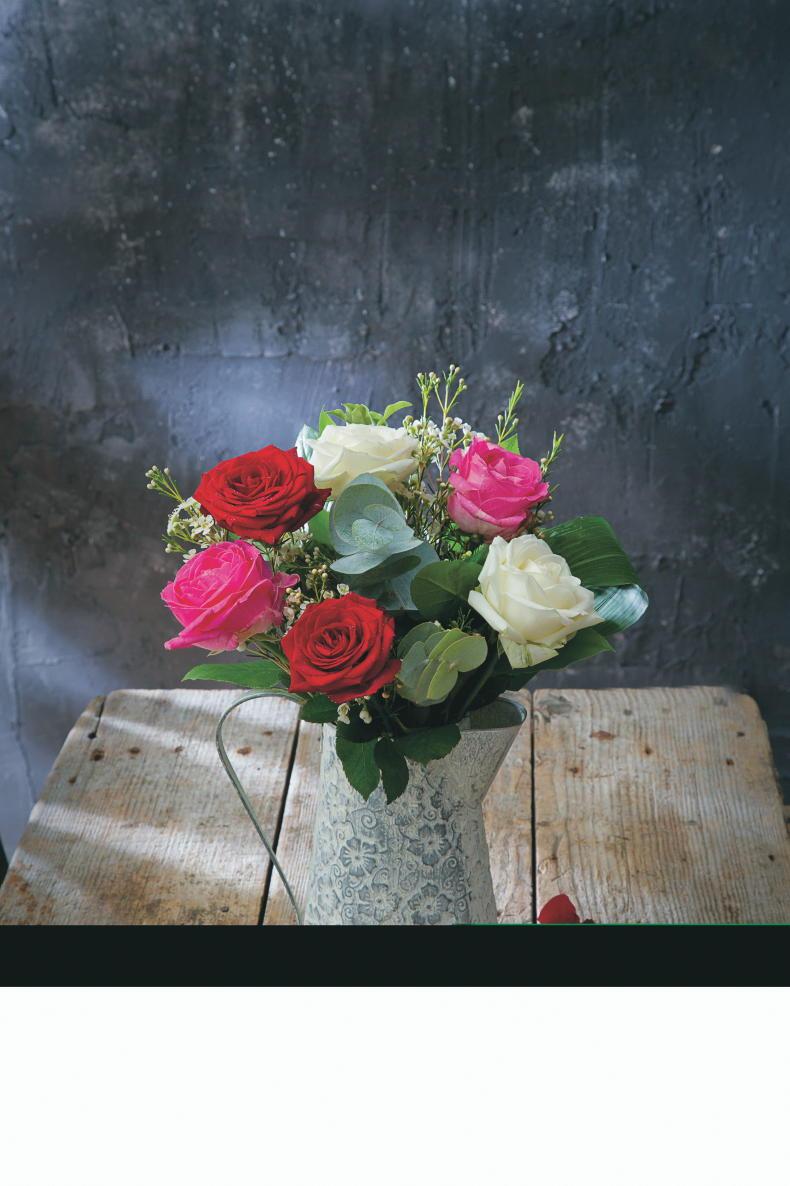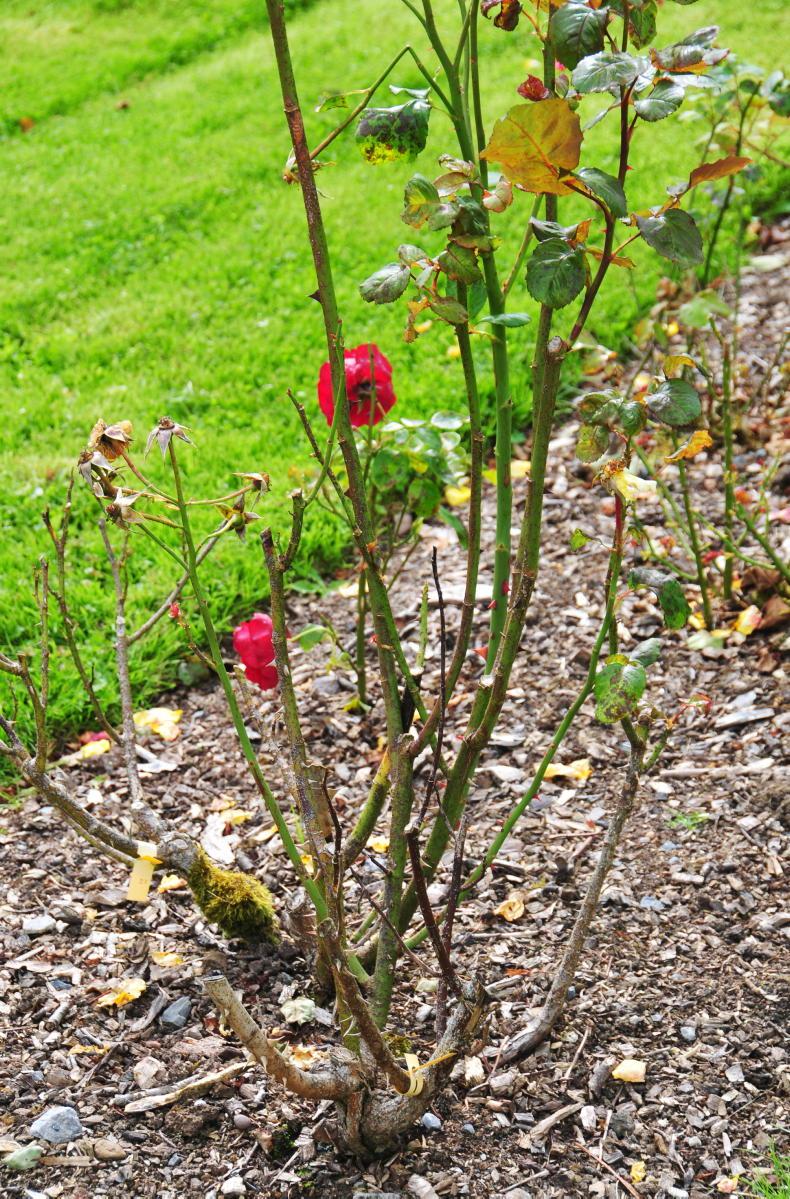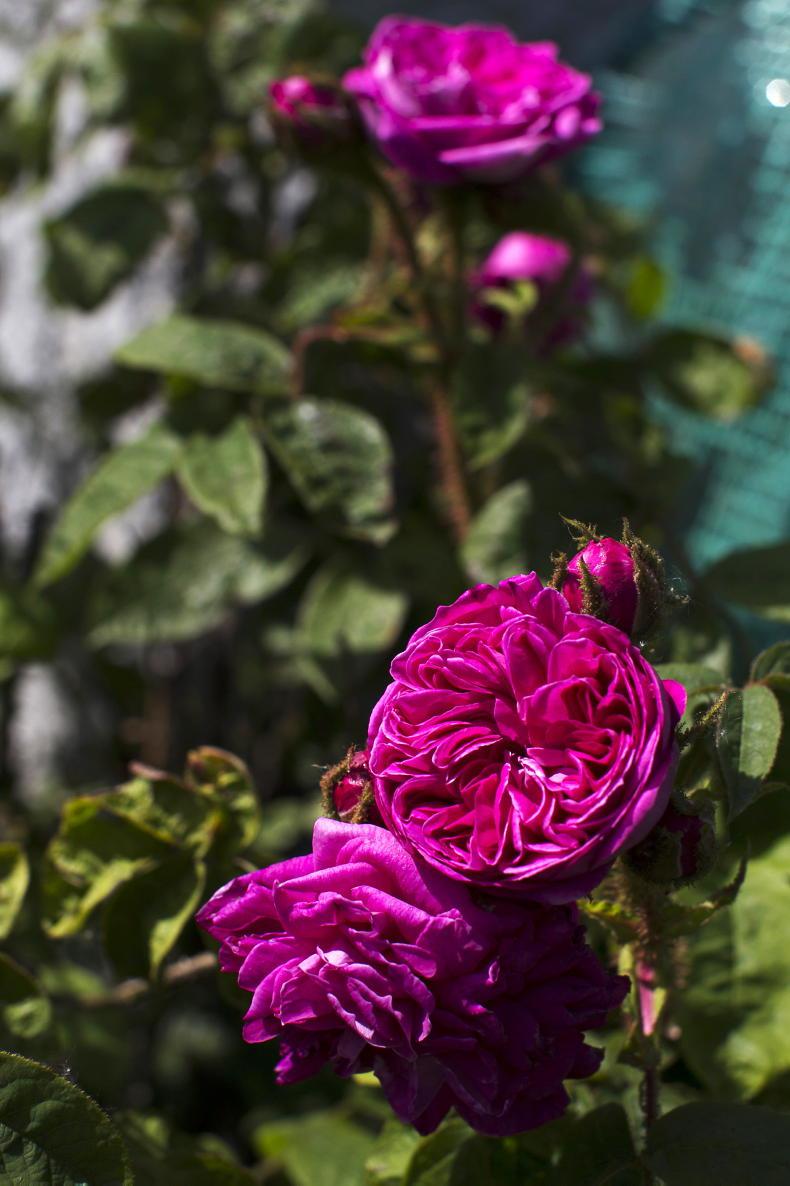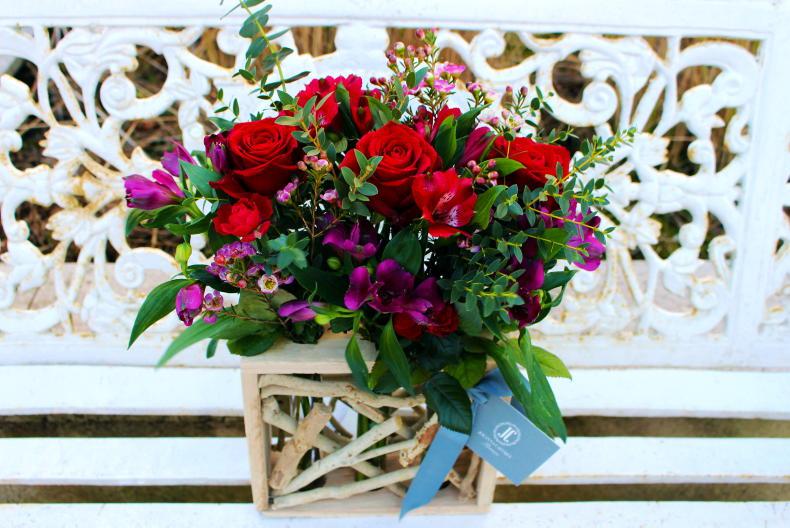Alan Whetham and his wife Josie own Just Roses, a rose garden centre at Woodview, Kilfinane in Co Limerick. They are retiring this year, so Irish Country Living grabbed a few words of advice from Alan before he decided to hang up his pruning shears.
“We’ve been established since 1989, so we have a good few years’ experience with roses and the reason we are in roses is because we love them,” says Alan.
“They are probably one of the best plants in the garden to give you longevity of flowering and they’re not as troublesome as people think,” he says.
Love affair
So what was it that first drew Alan to the rose? Where did this love affair start?
“A love affair is right. It really stemmed from the fact that I found I had a love for roses very early on, and I had a garden with lovely single colour rose beds – it just spurred from that and it seemed a good idea to go into them commercially,” he says.
Of course, as a horse owner myself, the first question I had to ask Alan was, is horse manure really as amazing for roses as everyone says it is, and why?
“Yes, absolutely,” he replies.

“I’m not too sure what the affiliation is between the back end of a horse and roses, but it does work. And strangely enough, we sell a product called ‘Gee Up’ which is organic horse manure and just before you rang, a guy took about 10 bags of it,” he says.
Horse manure is recommended at the time of planting the roses, as a feed at the first flush of flowers in June/July and then again in November to give them a winter mulch that will soak into the soil to feed the roots of the roses over the winter, while they are dormant.

Blackspot disease of roses has been rampant this summer.
“Roses are very hardy, they’re frost hardy down to about minus eight or nine [degrees],” says Alan.
This is the final year that Alan and Josie are selling rose plants and they are awaiting the time their last rose goes out the gate.
Before he sails off into the sunset, with Josie in tow, we couldn’t let Alan go without getting some good rose maintenance advice from him.
Best time of year to plant your roses?
“When you have a containerised plant, you can plant it any time of the year. The one thing we would warn people about is not to plant them in periods of very, very dry weather, because it’s very important that they have moisture.

“Once they’re in the ground for a year or more, they have their roots right down and they get access to the moisture that’s in the lower part of the soil levels. But in the early stages they need to be kept watered.”
Should you be mindful of the soil you are planting into?
“If you’ve got poor soil, then you can enrich it with a good seaweed compost and the Gee Up organic horse manure.”
How long should we expect to get out of a rose plant, if we maintain it well?

Horse manure can give new plants a jump start while providing essential nutrients for continual growth.
“We’ve roses in the garden that are in their planting positions for 40 years. They have great longevity, you are certainly getting 40-50 years out of them.
“If you find you planted them in the wrong place you can move roses, or any plants, during the dormant season, through the winter months between November and mid-February.”
What is Uncle Tom’s Rose Tonic and should we be feeding this regularly?
“It’s a remarkable product. It encourages healthy growth, improves the flowering ability of the rose, improves its general health and improves its disease resistance.
“It’s very easily applied. I use it as a foliar spray (drenching the leaves of the rose with a fine spray) but you can use it as a root drench as well. I find that foliar spray is more economical. I just spray every two to three weeks through the growing season from mid-March through September.”
What is your ‘must dos’ to ensure you get the best out of your rose plants?
“It’s important that you remove the dead heads because you don’t want the energy going into making seeds, you want the energies going into producing more roses.

“Keep feeding them with Uncle Tom’s Rose Tonic and make sure you cut them back so that they can rest over the winter months and it’s as simple as that.”
Read more
To fence to wall or to create a green boundary?
The ultimate year-round garden
Alan Whetham and his wife Josie own Just Roses, a rose garden centre at Woodview, Kilfinane in Co Limerick. They are retiring this year, so Irish Country Living grabbed a few words of advice from Alan before he decided to hang up his pruning shears.
“We’ve been established since 1989, so we have a good few years’ experience with roses and the reason we are in roses is because we love them,” says Alan.
“They are probably one of the best plants in the garden to give you longevity of flowering and they’re not as troublesome as people think,” he says.
Love affair
So what was it that first drew Alan to the rose? Where did this love affair start?
“A love affair is right. It really stemmed from the fact that I found I had a love for roses very early on, and I had a garden with lovely single colour rose beds – it just spurred from that and it seemed a good idea to go into them commercially,” he says.
Of course, as a horse owner myself, the first question I had to ask Alan was, is horse manure really as amazing for roses as everyone says it is, and why?
“Yes, absolutely,” he replies.

“I’m not too sure what the affiliation is between the back end of a horse and roses, but it does work. And strangely enough, we sell a product called ‘Gee Up’ which is organic horse manure and just before you rang, a guy took about 10 bags of it,” he says.
Horse manure is recommended at the time of planting the roses, as a feed at the first flush of flowers in June/July and then again in November to give them a winter mulch that will soak into the soil to feed the roots of the roses over the winter, while they are dormant.

Blackspot disease of roses has been rampant this summer.
“Roses are very hardy, they’re frost hardy down to about minus eight or nine [degrees],” says Alan.
This is the final year that Alan and Josie are selling rose plants and they are awaiting the time their last rose goes out the gate.
Before he sails off into the sunset, with Josie in tow, we couldn’t let Alan go without getting some good rose maintenance advice from him.
Best time of year to plant your roses?
“When you have a containerised plant, you can plant it any time of the year. The one thing we would warn people about is not to plant them in periods of very, very dry weather, because it’s very important that they have moisture.

“Once they’re in the ground for a year or more, they have their roots right down and they get access to the moisture that’s in the lower part of the soil levels. But in the early stages they need to be kept watered.”
Should you be mindful of the soil you are planting into?
“If you’ve got poor soil, then you can enrich it with a good seaweed compost and the Gee Up organic horse manure.”
How long should we expect to get out of a rose plant, if we maintain it well?

Horse manure can give new plants a jump start while providing essential nutrients for continual growth.
“We’ve roses in the garden that are in their planting positions for 40 years. They have great longevity, you are certainly getting 40-50 years out of them.
“If you find you planted them in the wrong place you can move roses, or any plants, during the dormant season, through the winter months between November and mid-February.”
What is Uncle Tom’s Rose Tonic and should we be feeding this regularly?
“It’s a remarkable product. It encourages healthy growth, improves the flowering ability of the rose, improves its general health and improves its disease resistance.
“It’s very easily applied. I use it as a foliar spray (drenching the leaves of the rose with a fine spray) but you can use it as a root drench as well. I find that foliar spray is more economical. I just spray every two to three weeks through the growing season from mid-March through September.”
What is your ‘must dos’ to ensure you get the best out of your rose plants?
“It’s important that you remove the dead heads because you don’t want the energy going into making seeds, you want the energies going into producing more roses.

“Keep feeding them with Uncle Tom’s Rose Tonic and make sure you cut them back so that they can rest over the winter months and it’s as simple as that.”
Read more
To fence to wall or to create a green boundary?
The ultimate year-round garden











 This is a subscriber-only article
This is a subscriber-only article










SHARING OPTIONS: